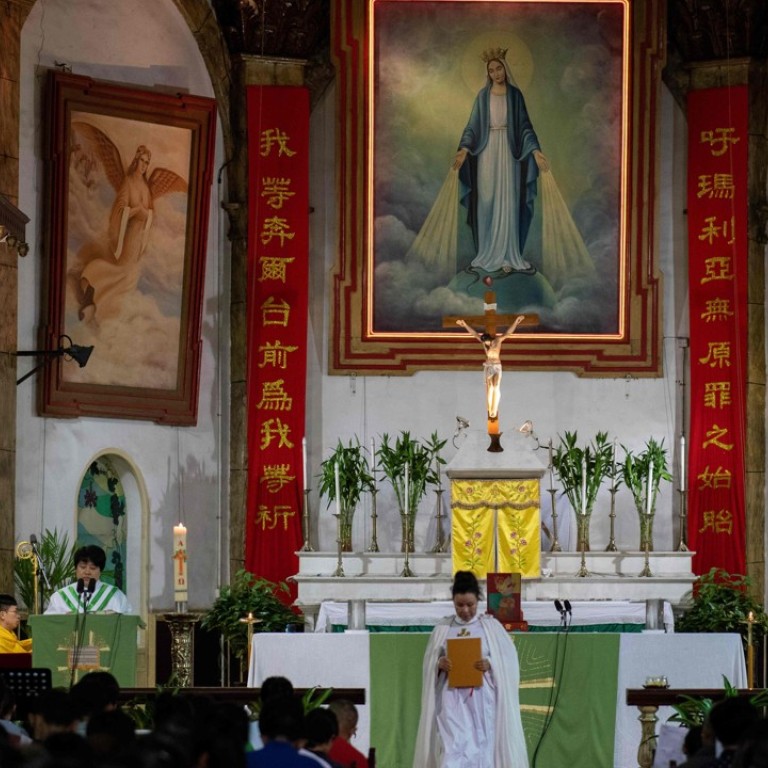
Beijing needs to show better understanding of churches after deal
A provisional agreement with the Vatican on the appointment of bishops remains unclear and comes at a time when the Communist Party is cracking down on religion
China and the Vatican have long wanted to improve relations. For Beijing, there is the benefit of wresting away Taiwan’s last diplomatic ally in Europe and the domino effect that would have among Catholic-dominant nations in Latin America. The Vatican’s motivation is the pastoral needs of the country’s estimated 12 million followers of the Roman Catholic faith. A provisional agreement on the appointment of bishops, which took more than a decade to negotiate, is therefore historic but, for the Chinese side, should also be the impetus to allow greater freedom for all religions.
China’s Catholics are divided between the state-supervised Chinese Catholic Patriotic Association and an underground church that swears loyalty to the Vatican. Communist authorities broke off relations in 1951 and the Vatican’s Chinese embassy has since remained in Taipei. The deal eases tensions through Pope Francis recognising seven Chinese bishops appointed by Beijing. However, as a Vatican spokesman said, the accord is “not the end of a process, but the beginning”.
That should appease critics, the most vocal of them being the hawkish former archbishop of Hong Kong, Cardinal Joseph Zen Ze-kiun. But few details about what was signed in Beijing on Saturday by deputy foreign ministers have been released beyond that they involve the appointment of bishops, so criticism is premature. It is not known if Beijing will select bishops from a list provided by the Vatican or whether the reverse is true, although Francis contends he will have the final say. All that is certain is ties are warming, as confirmed by a foreign ministry statement that “China and the Vatican will continue to maintain communications and push forward the process of improving relations”.
Francis recognises he cannot ignore Beijing’s rising power and he has been vigorously pursuing rapprochement, his eye also being on unifying the church in China. While the Vatican’s switching of Chinese diplomatic recognition to Beijing would be a blow to Taipei, there is no indication of when that will happen. The Communist Party has been toughening its oversight of religion, which it perceives as having the potential to weaken its political control. Churches have been shut down and rules drafted banning foreigners from using the internet to preach and promote religion.
Beijing’s policy of ensuring all religious practice is “Chinese in orientation” means the deal with the Vatican remains unclear, but the growing wealth of Chinese has been accompanied by an explosion in Christianity as citizens seek spiritual comfort. No matter what the religion, authorities have to show greater understanding towards churches and followers.

